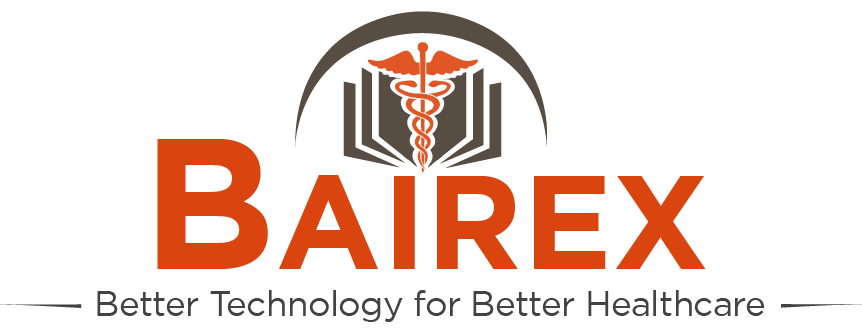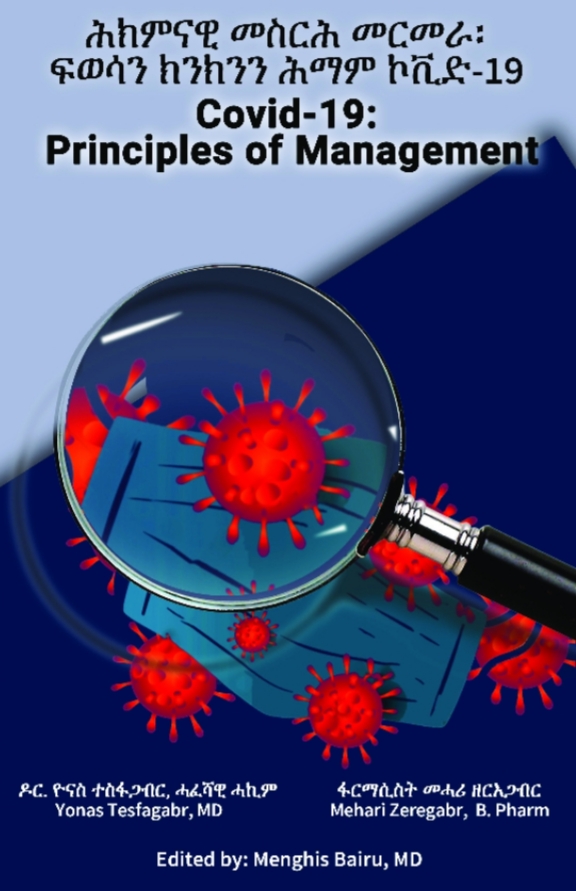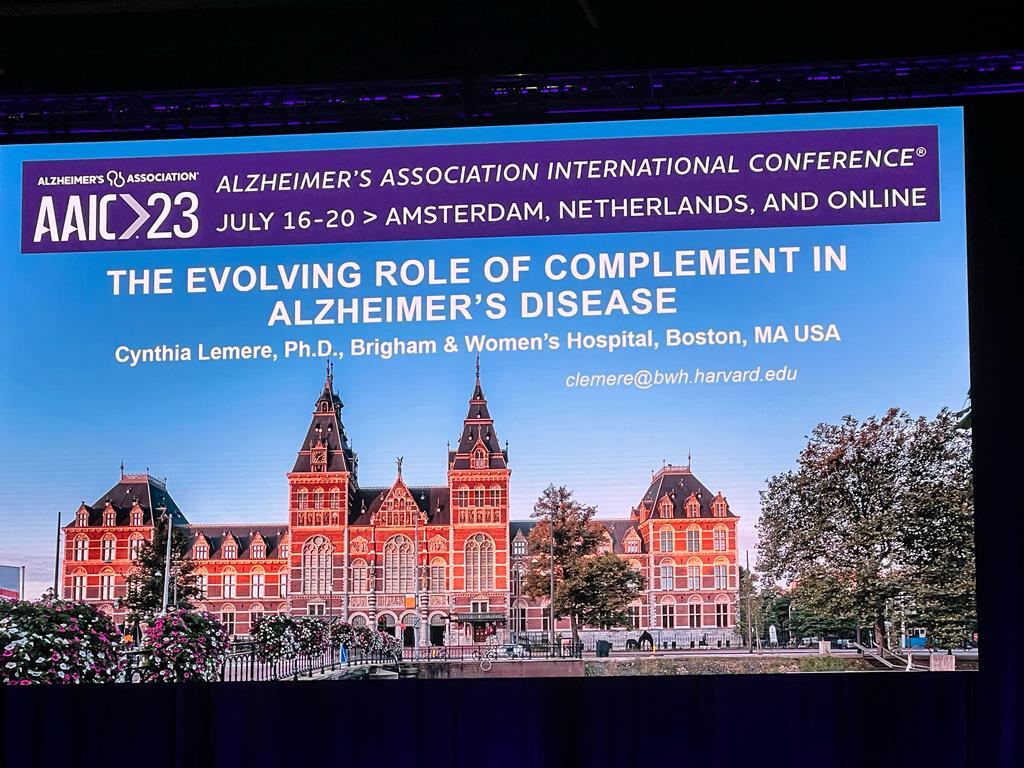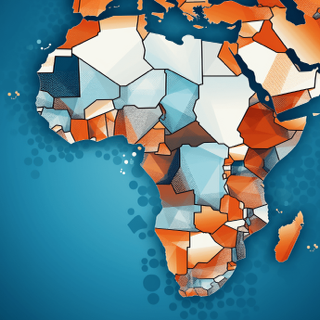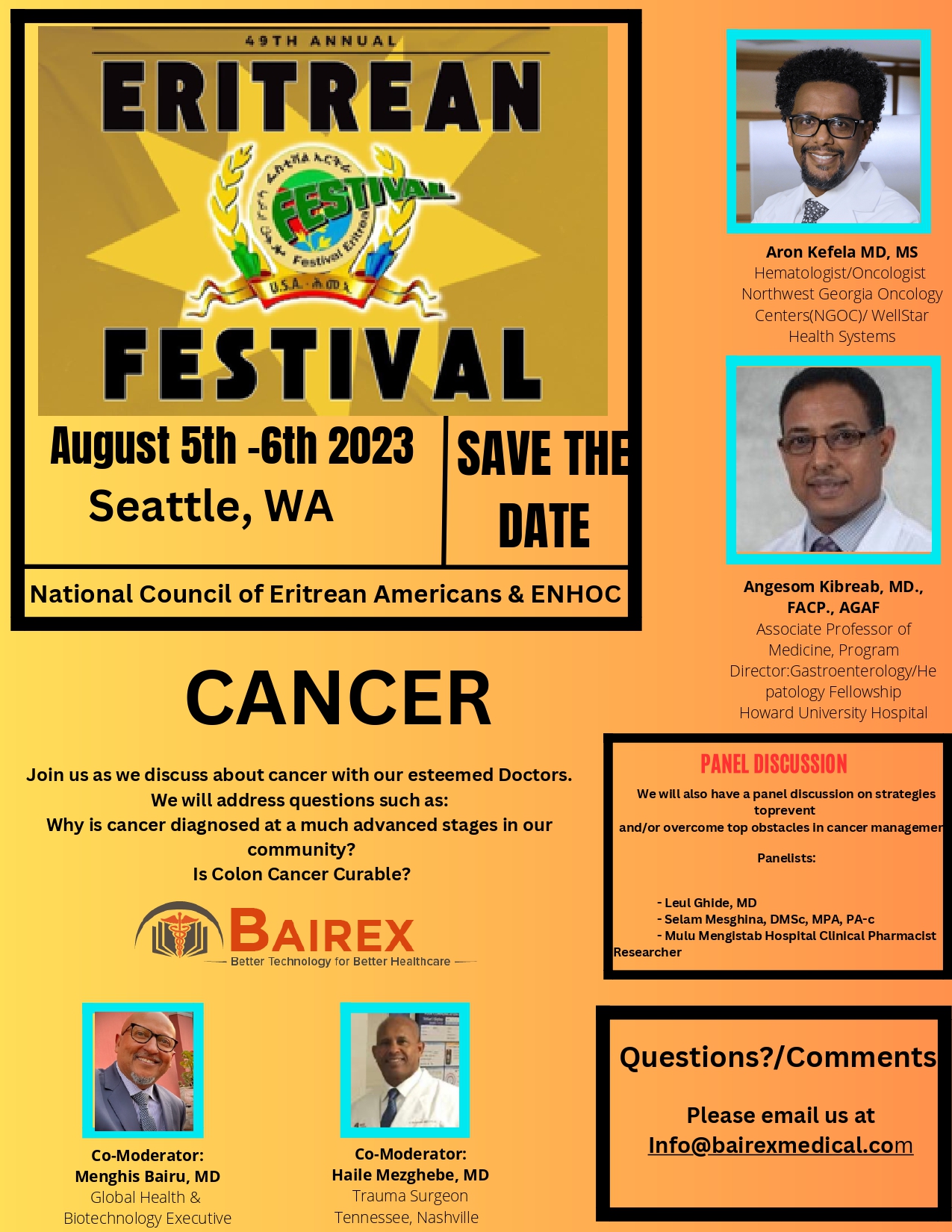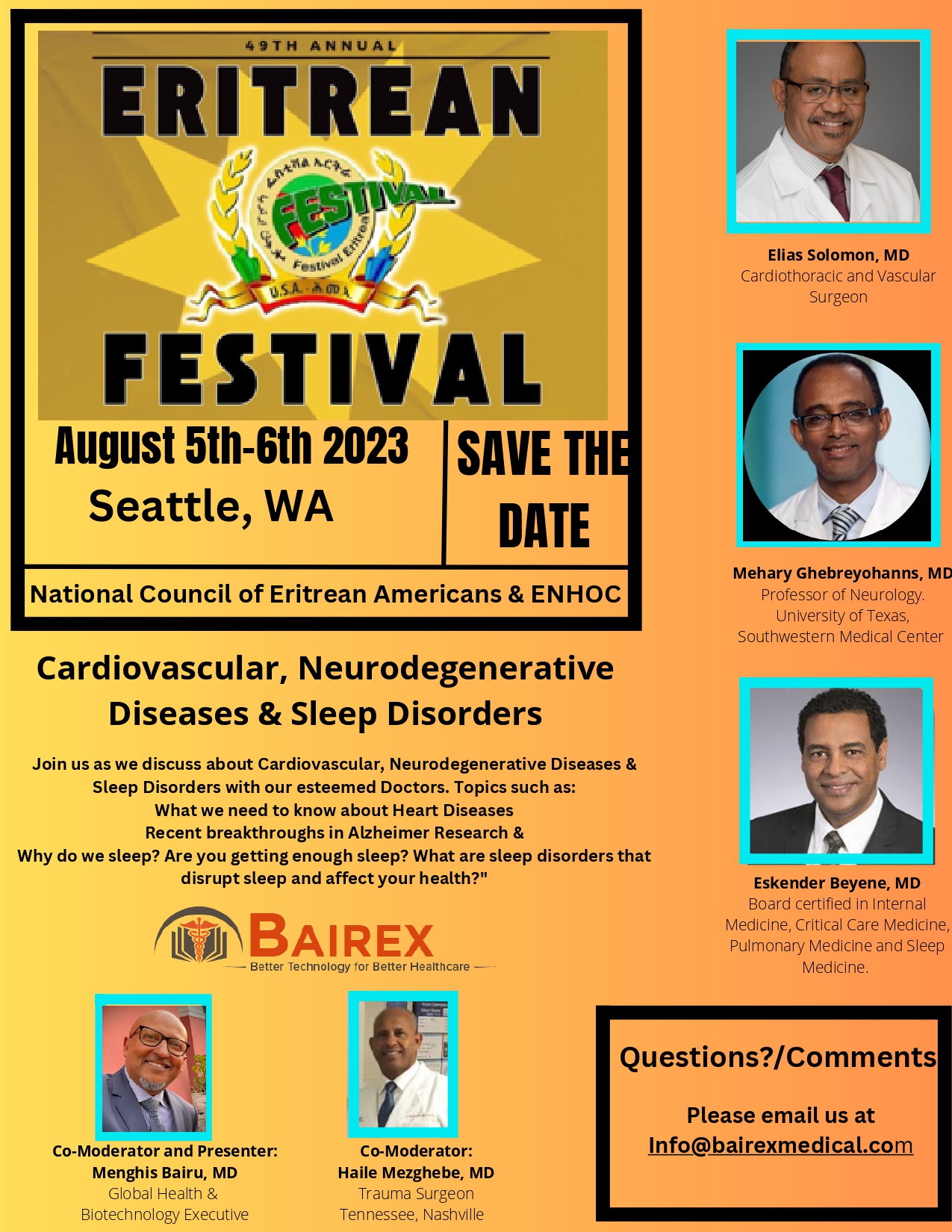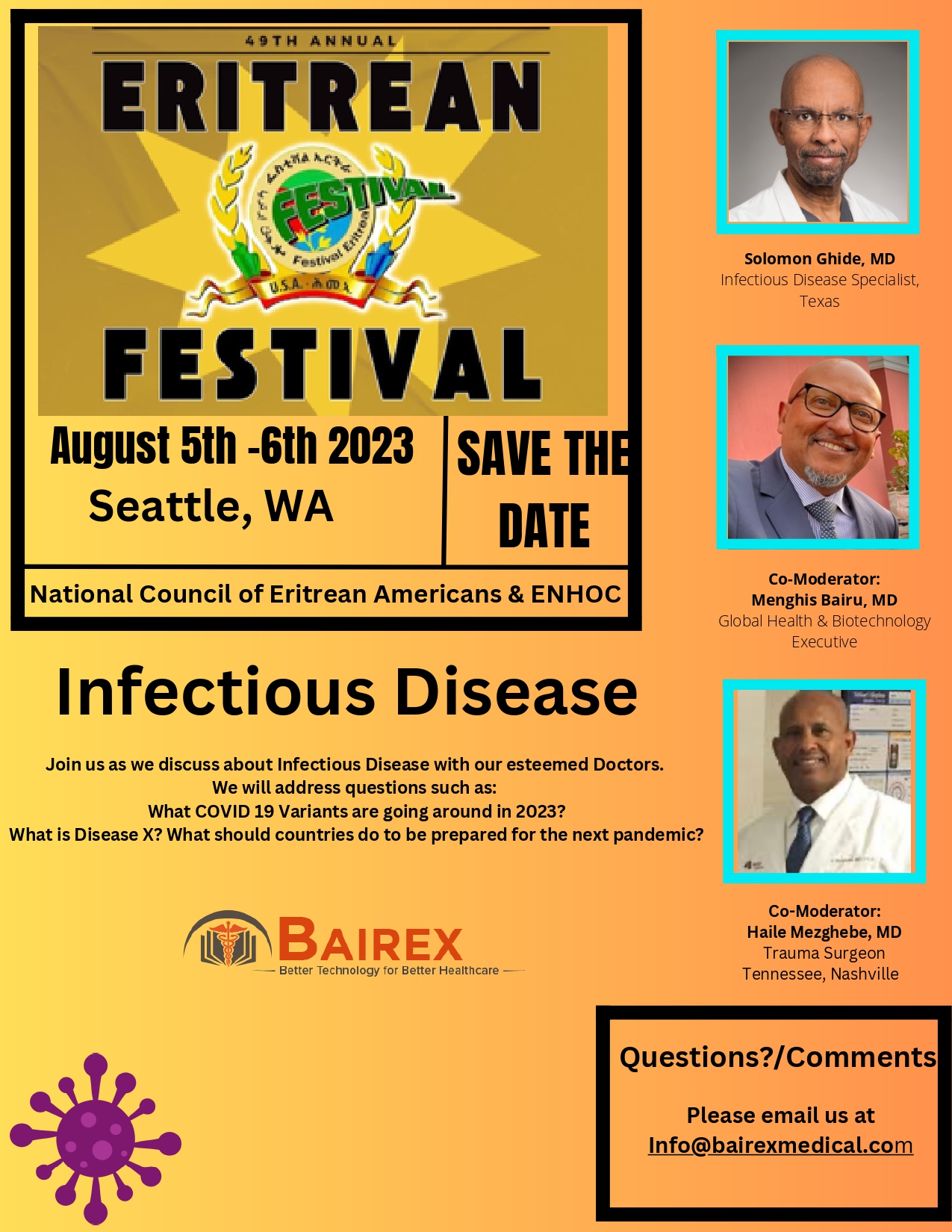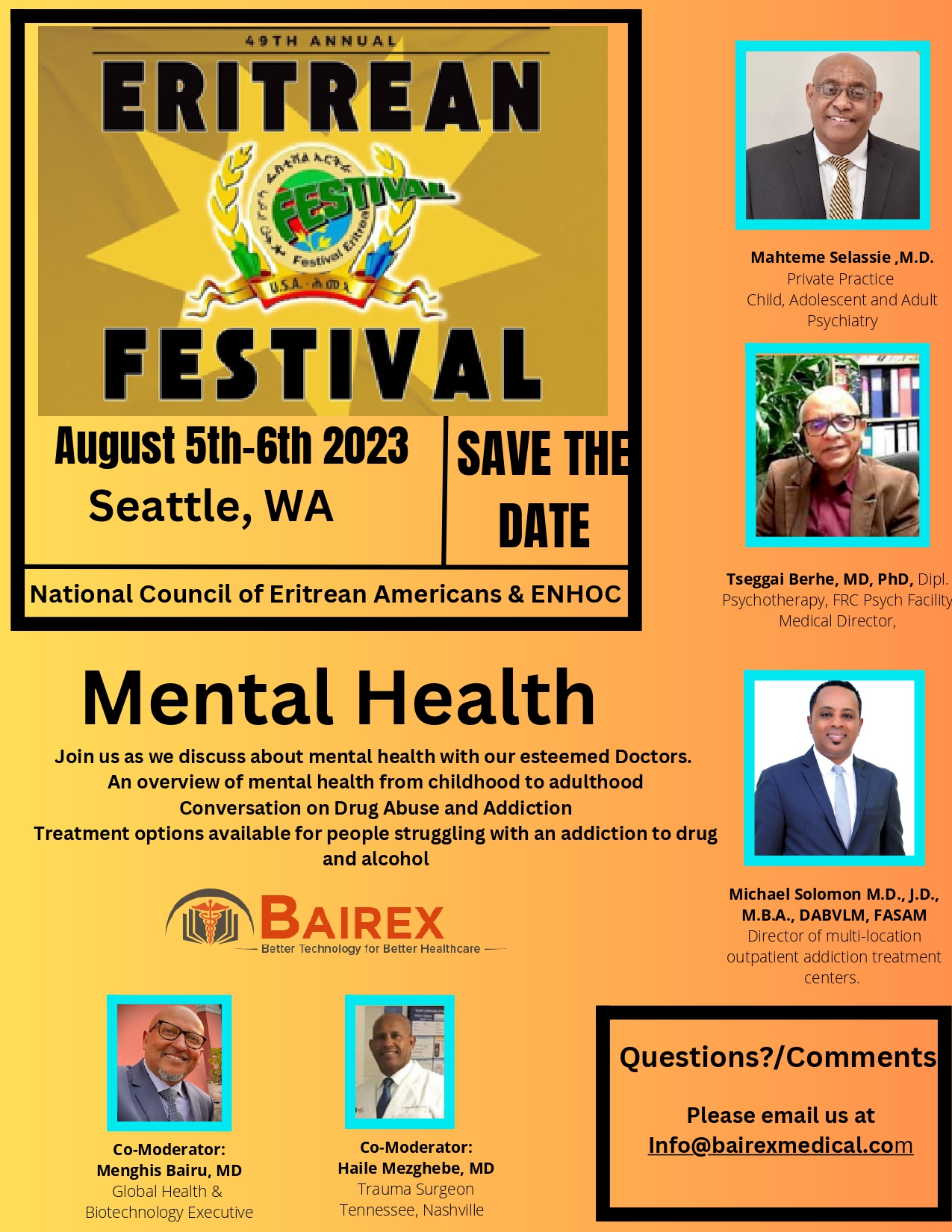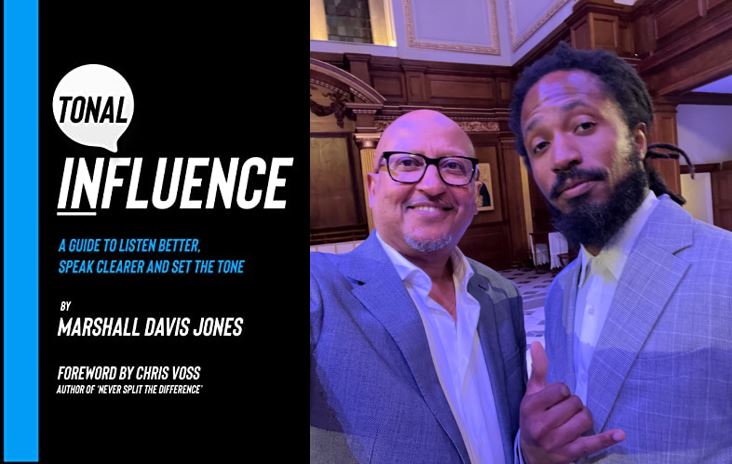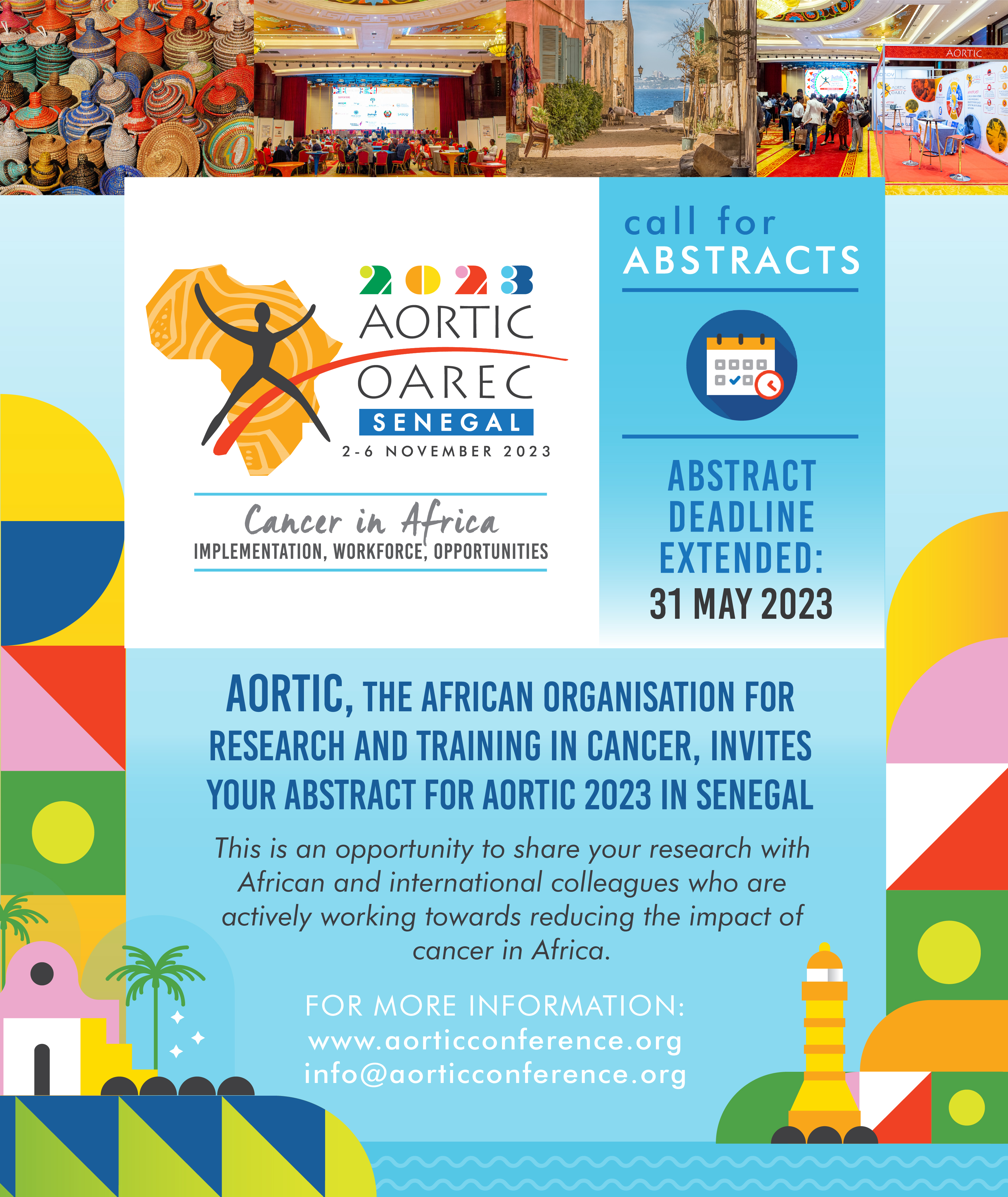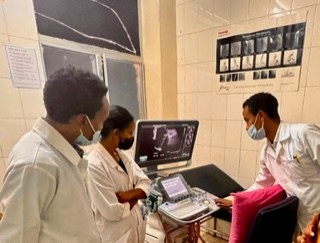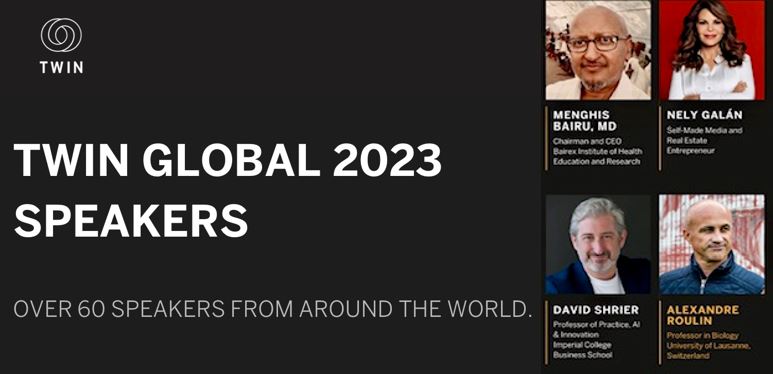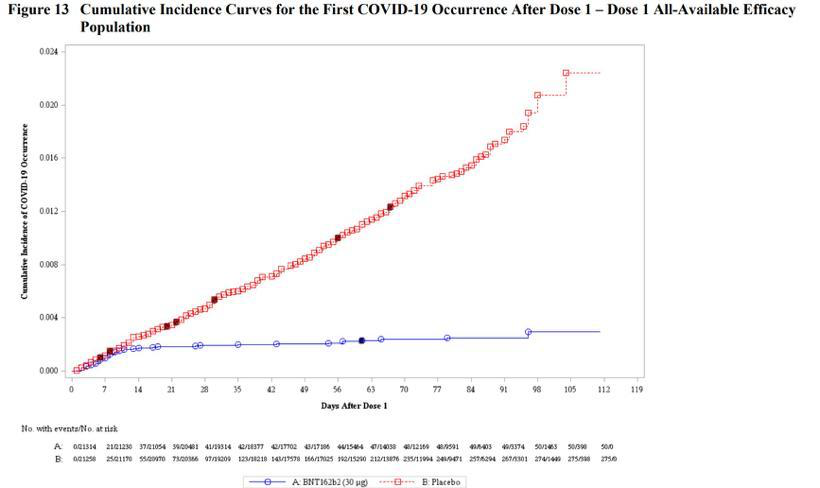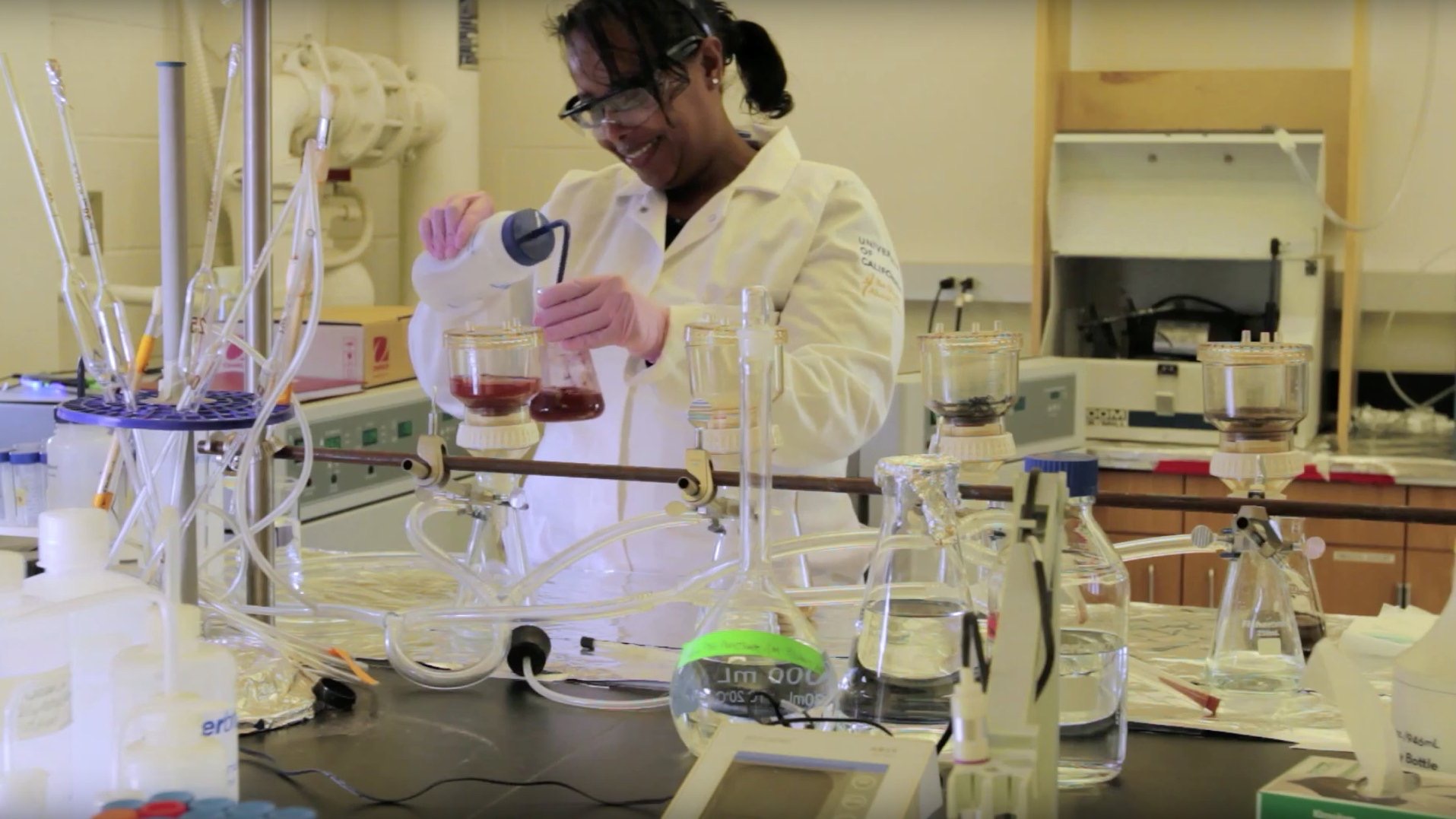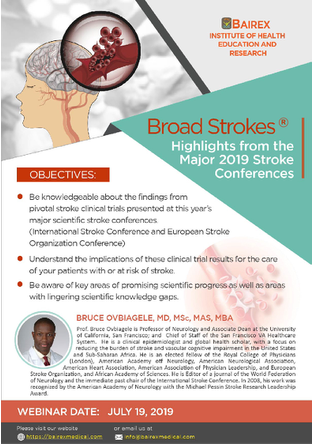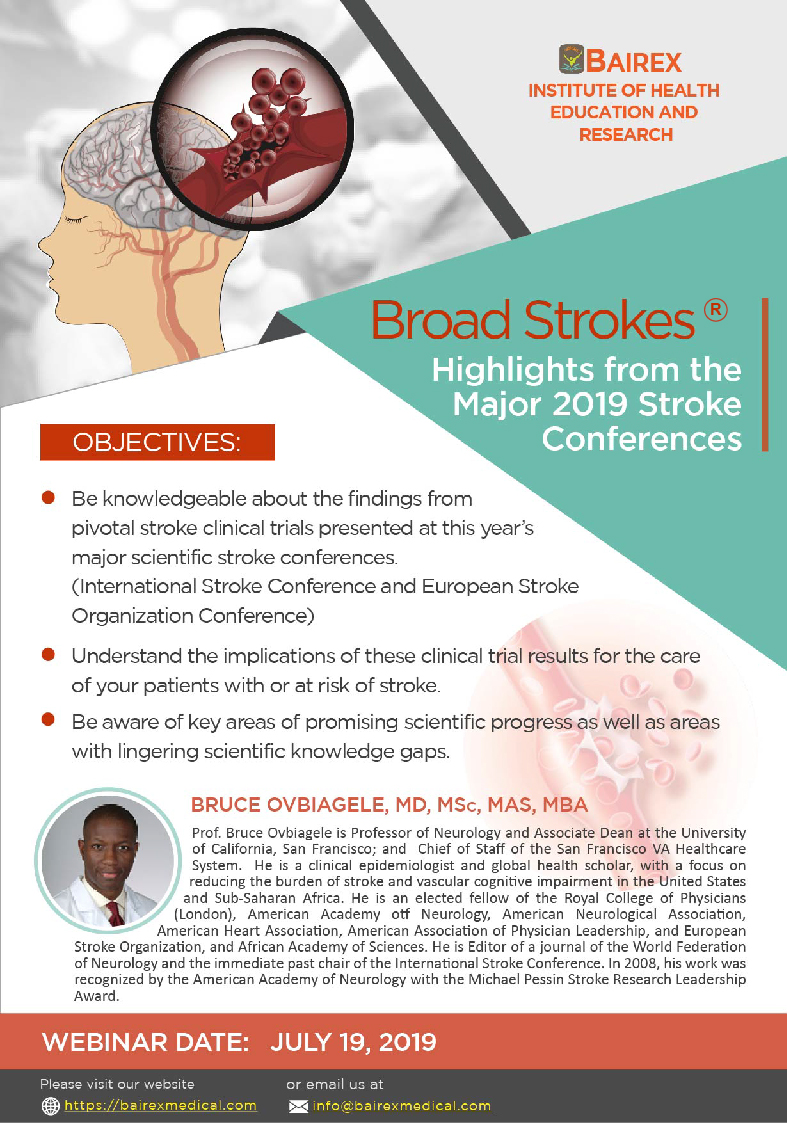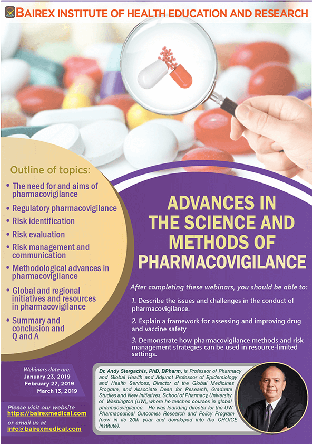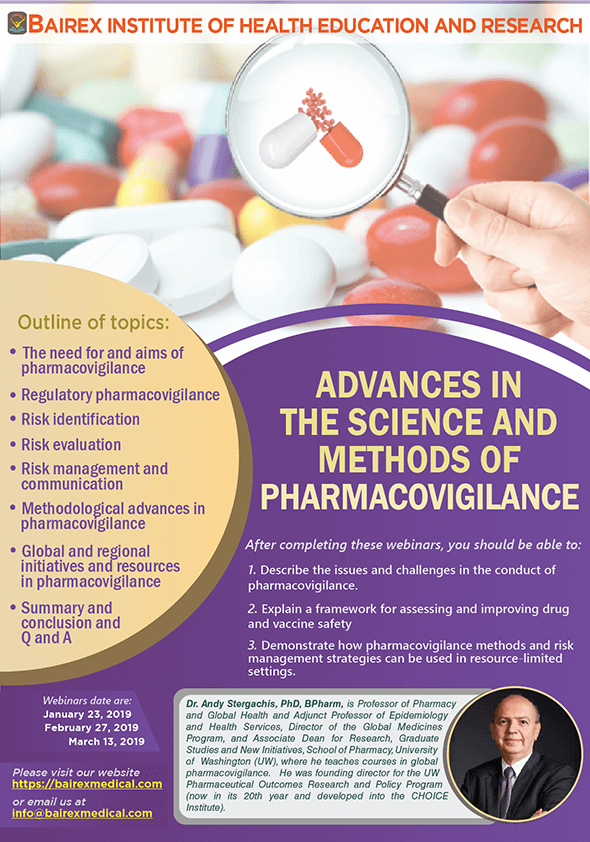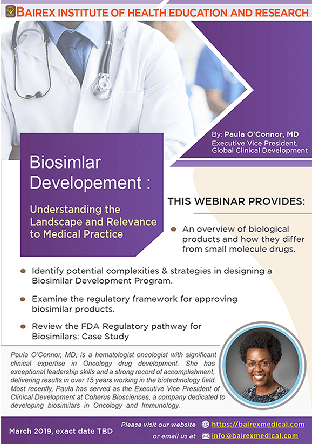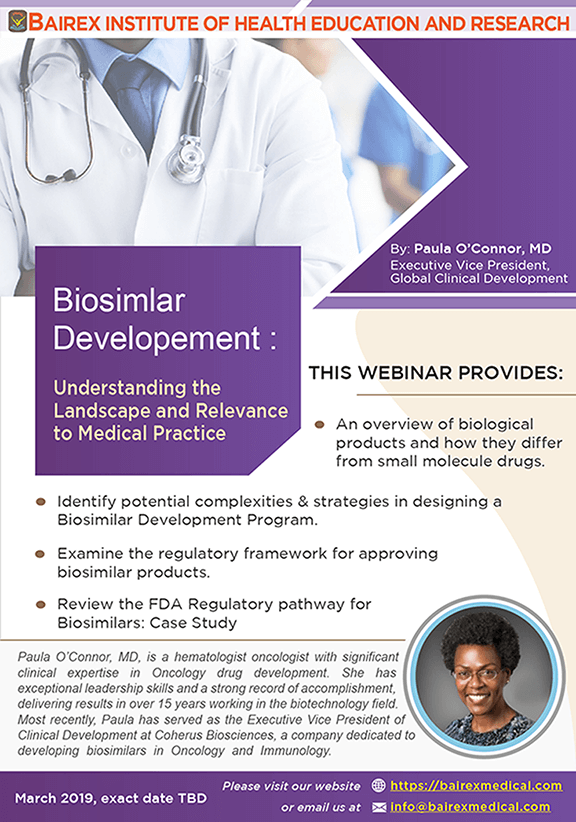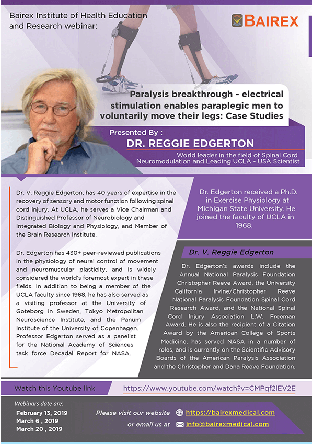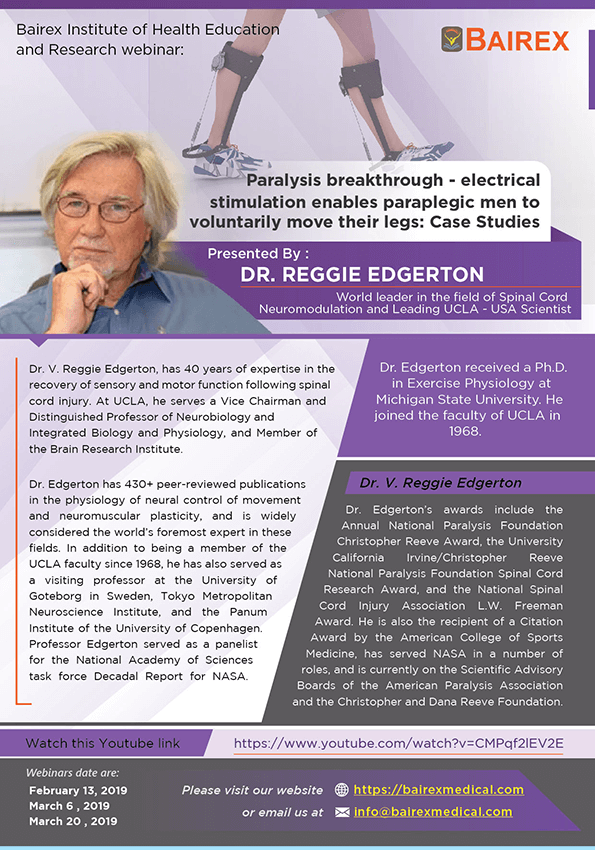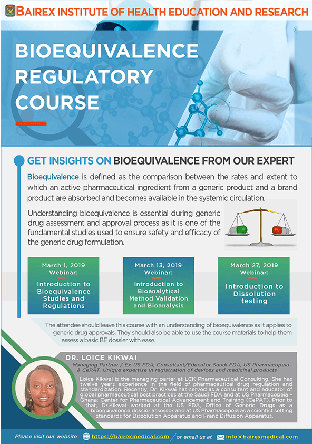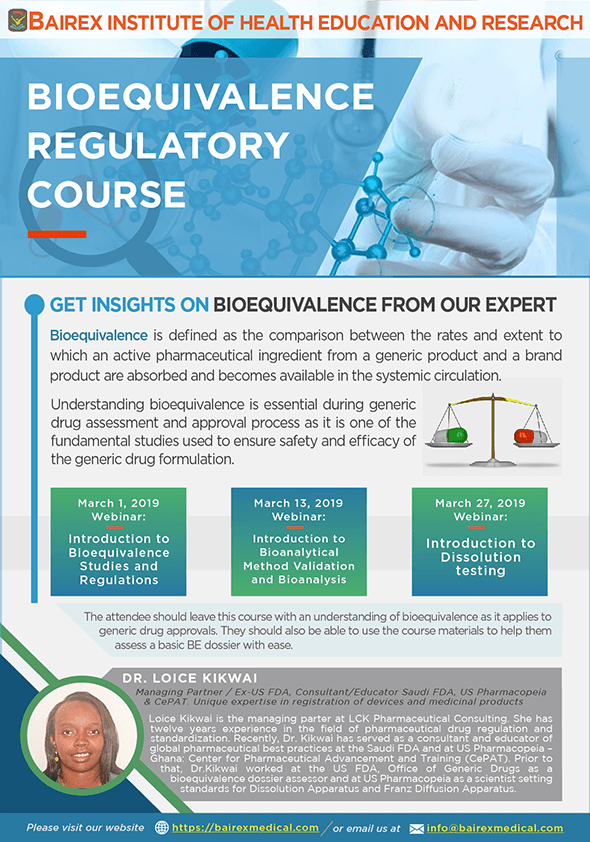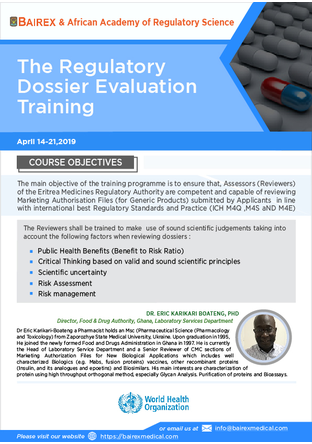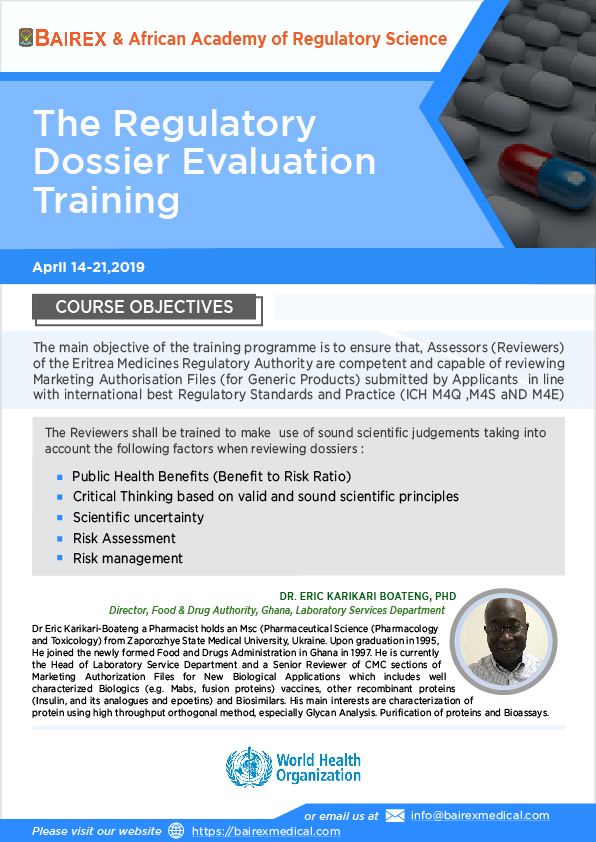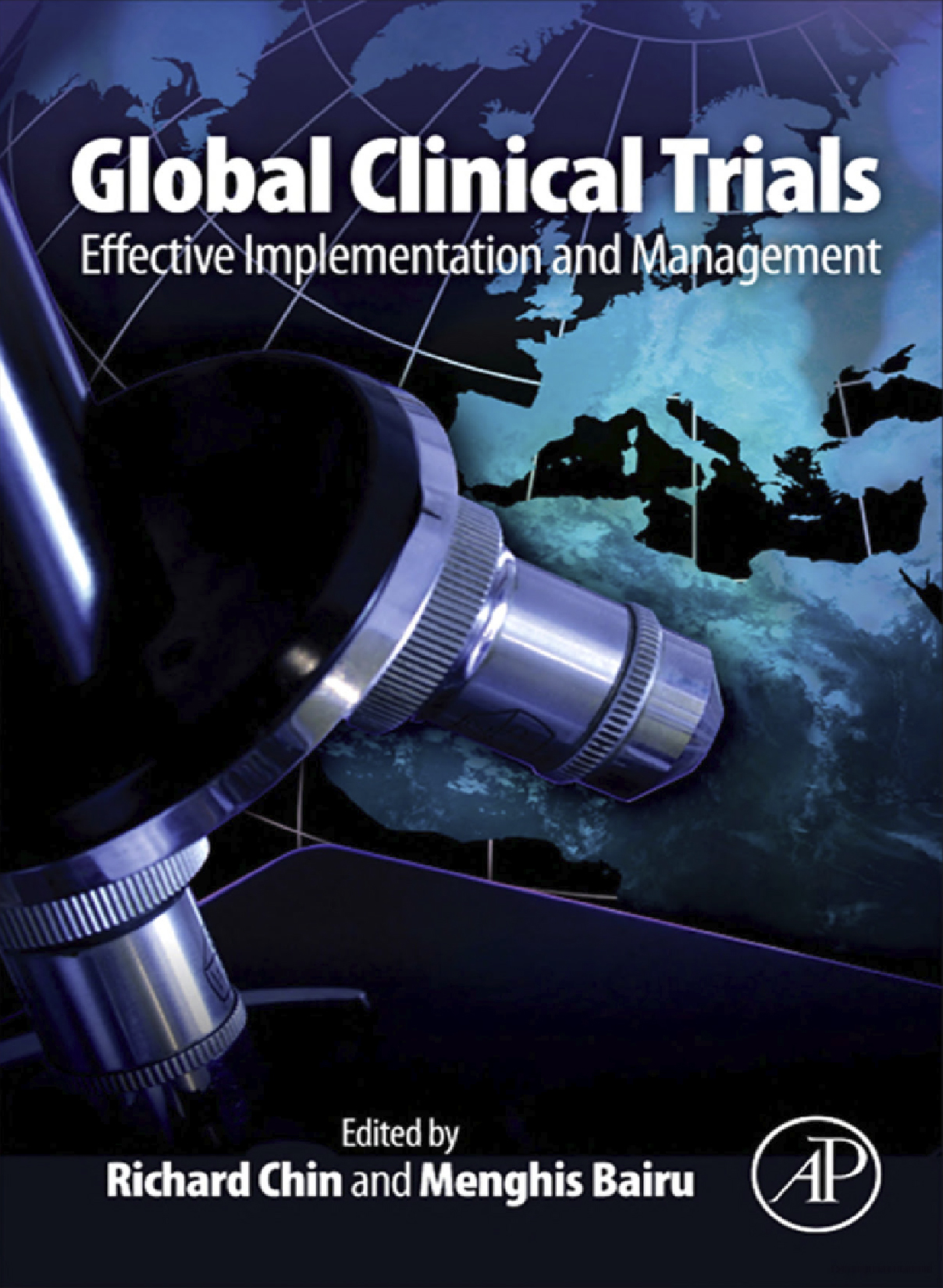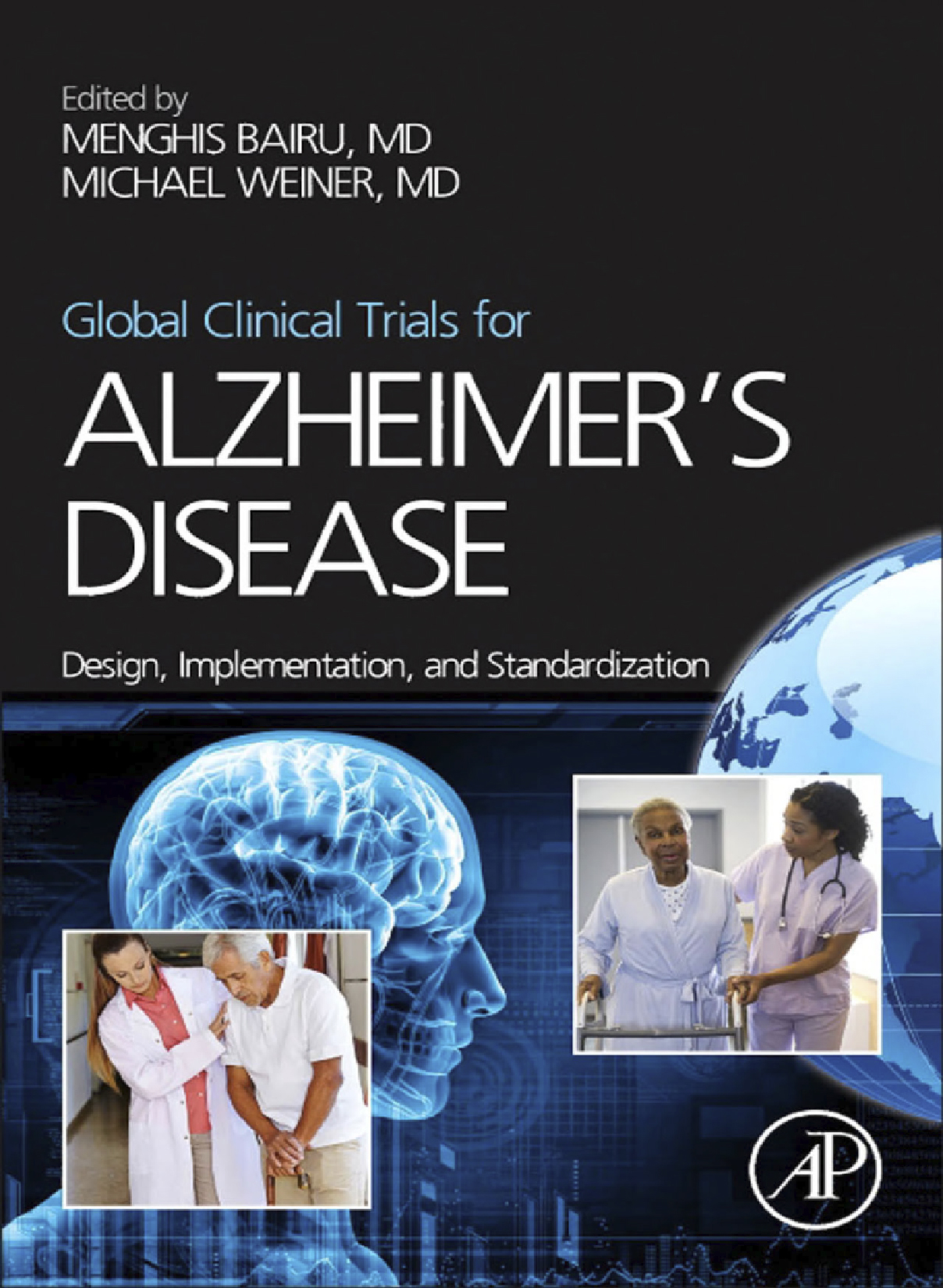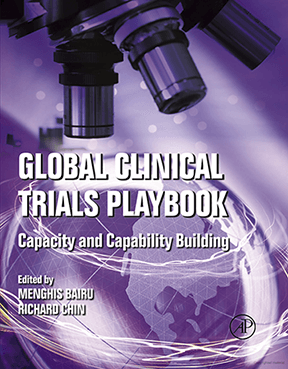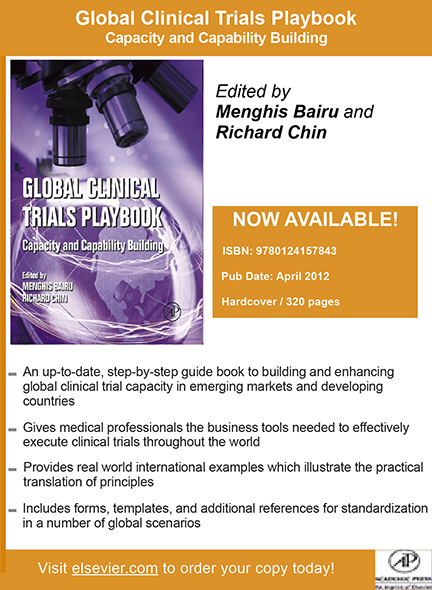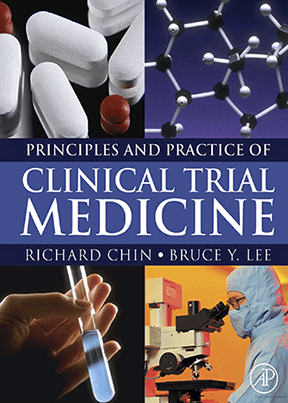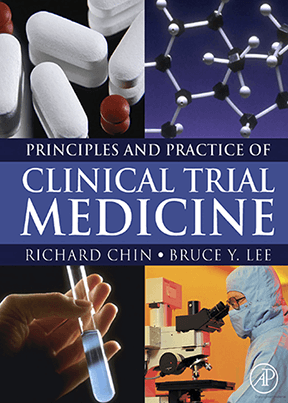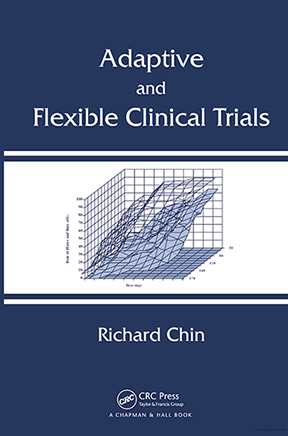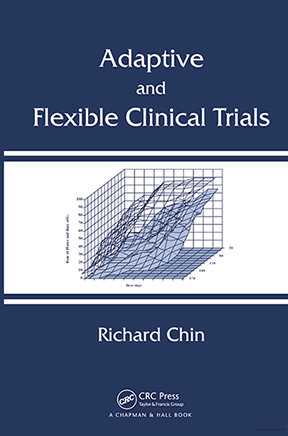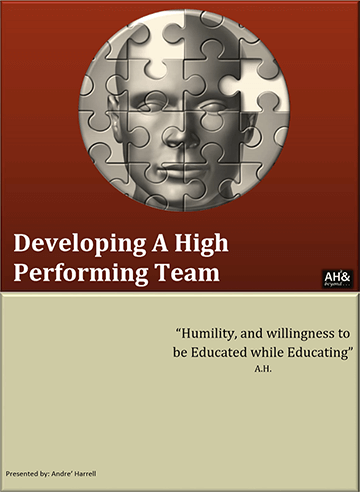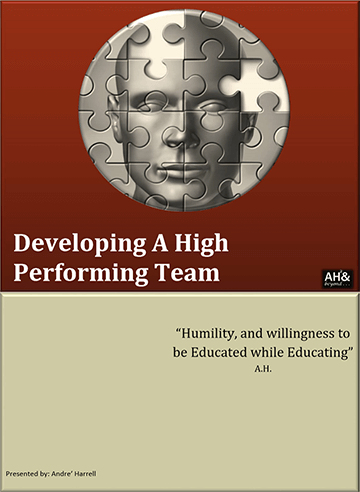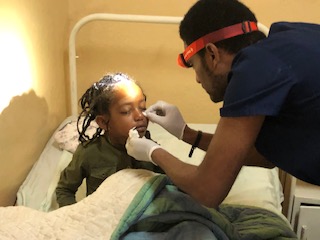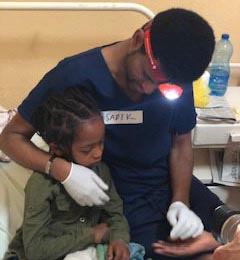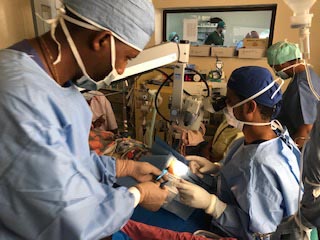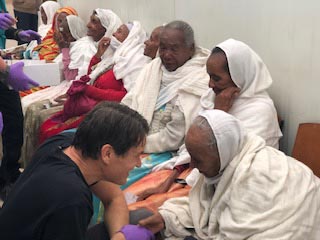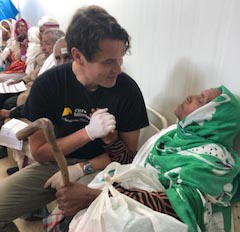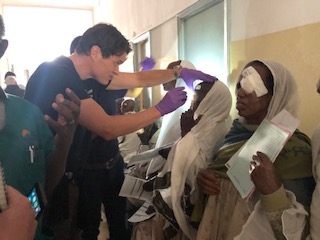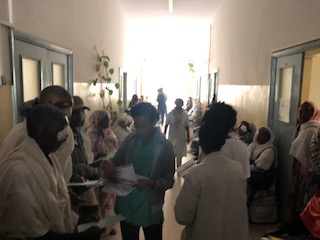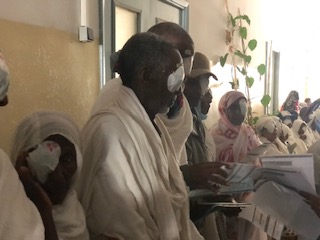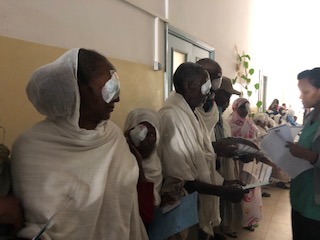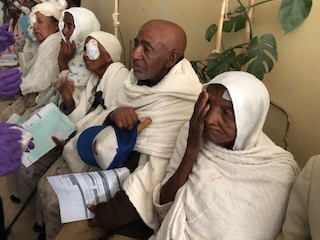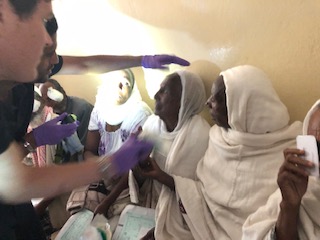Latest News
Berhan Aini Hospital where the Himalayan Cataract Group performed more than 1300 surgeries
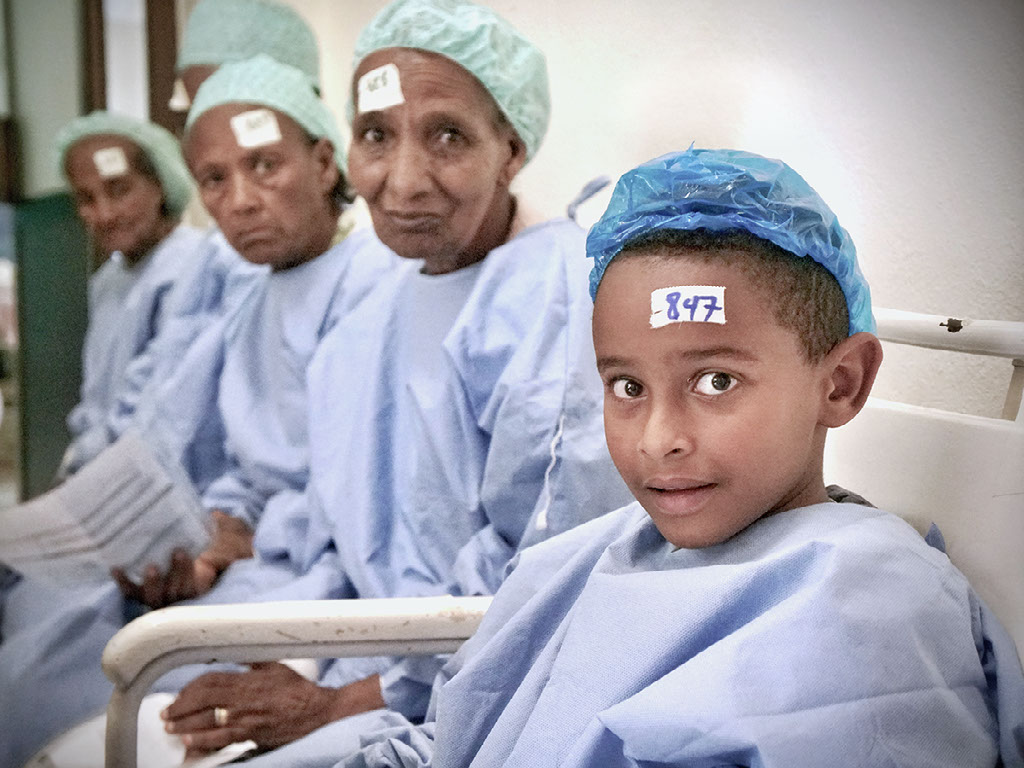
The Bravest Little Boy
in Eritrea, Africa
Story and photographs by Christopher Briscoe
A father stands outside closed hospital doors. Whenever they open, pushing against a pile of soiled gowns strewn on the worn linoleum floor, he peeks inside and peers down the long, crowded hallway, searching for his son. His little boy sits in an endless line of patients, all bearing a hand written I.D. number taped to their foreheads. They are waiting for their turn on the operating table, already wearing blue medical gowns with dark plastic bags wrapped around their feet.
. . . .
Courses and Webinars
Medical Publications
Up and Coming Events
Our Gallery
Bairex provides training for regulators in Africa in response to the continent need highlighted by the newly formed African Medicinal Agency. The content of the training will include basic lectures on information necessary to build regulatory capacity in each country/region, such as benefit/risk evaluation of the medical products and post-marketing safety measures.

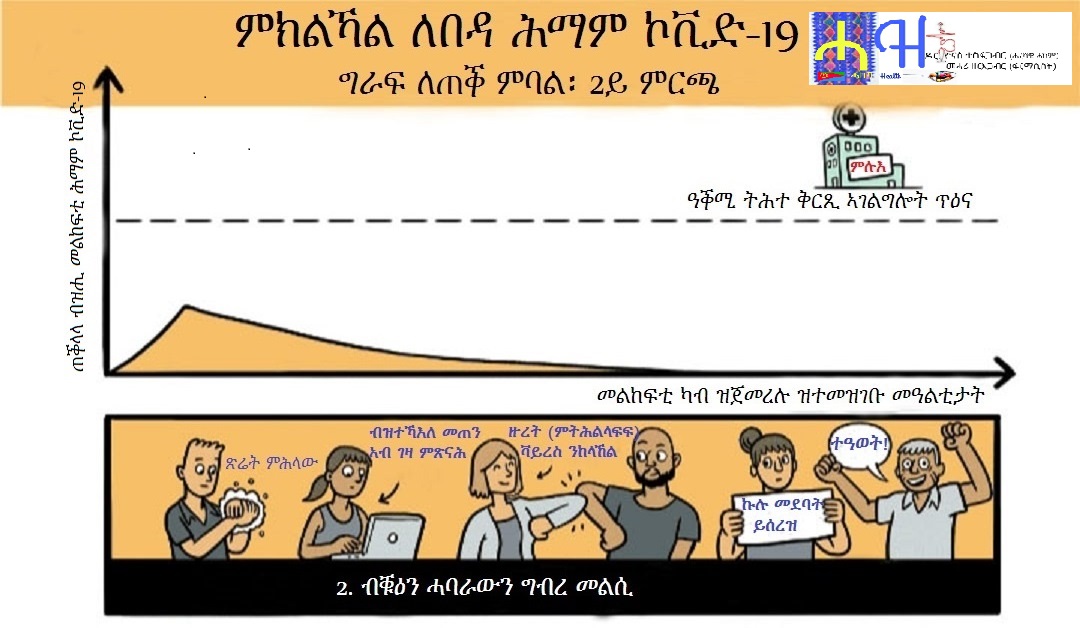
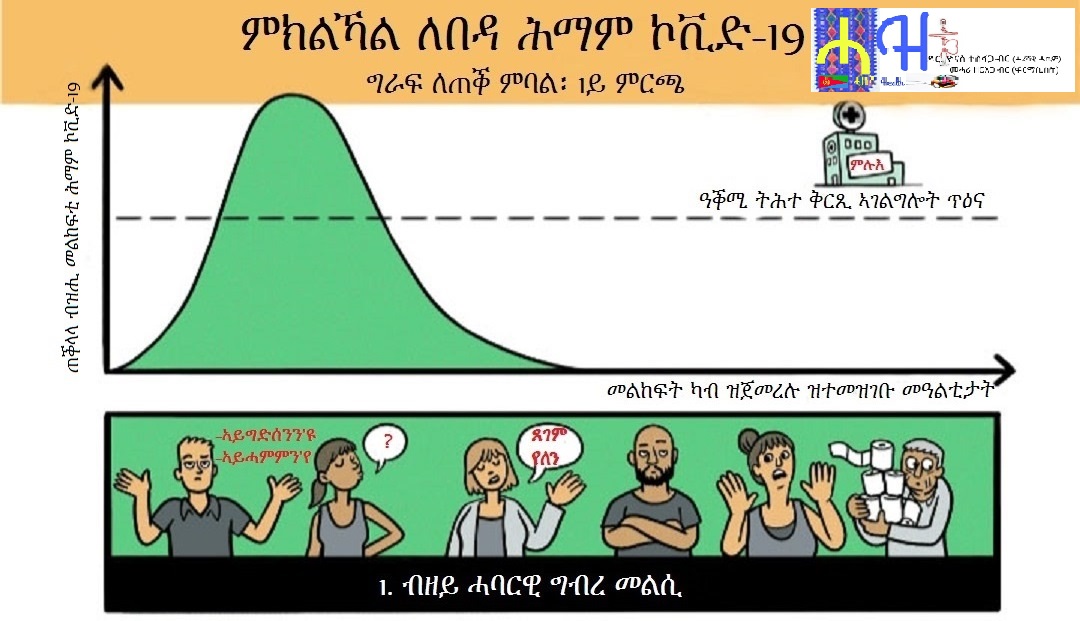
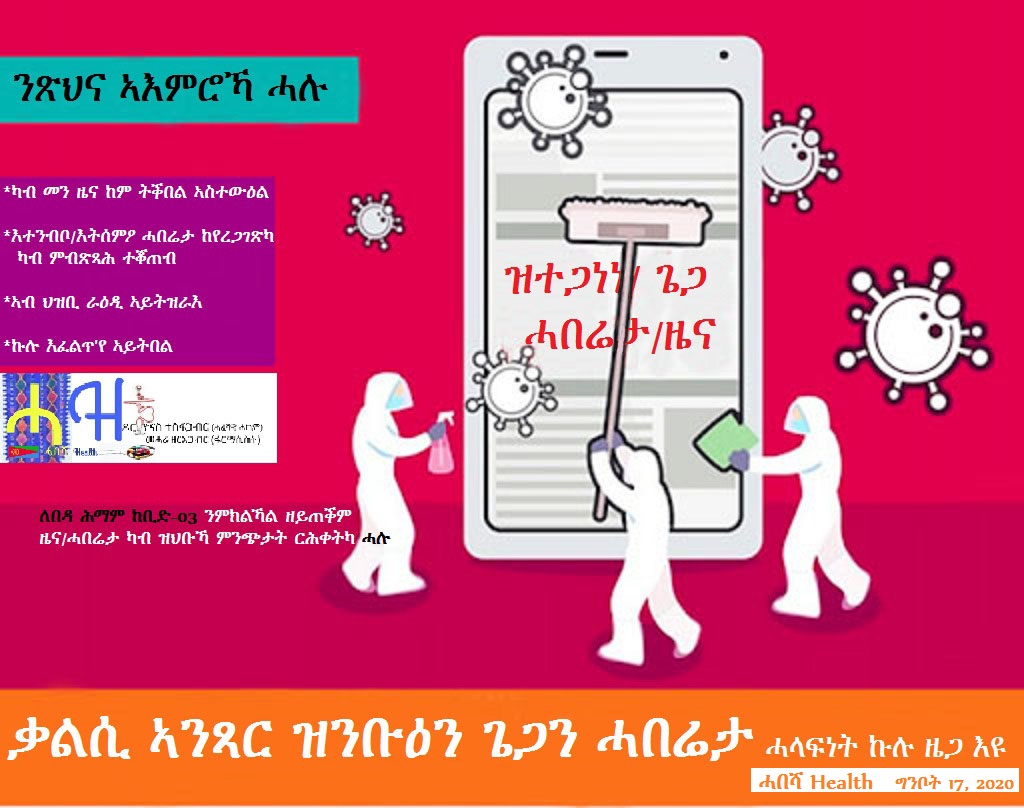

July 7-9, 2023 Africa Job Creation Forum
Are you attending tomorrow the AeTrade Group first edition of the Africa Job Creation Forum which is co-organized by the African Union Commission and other Public-Private partners? This is a unique high-level platform that will provide an opportunity to advocate for the scaling up of decent job creation across the continent through sharing experiences, forging innovative partnerships and creating networks that will be vital in building an integrated and prosperous continent.
Hope to see you all at the Nelson Mandela Conference Hall at the AU Headquarters in Addis Ababa, Ethiopia www.africajobcreationsummit.org.
Community Health Education: Cancer
Join us as we discuss about cancer with our esteemed Doctors.
We will address questions such as:
Why is cancer diagnosed at a much-advanced stage in our community?
Is Colon Cancer Curable?
Community Health Education: Cardiovascular, Neurodegenerative Diseases & Sleep Disorders
Join us as we discuss about Cardiovascular, Neurodegenerative Diseases & Sleep Disorders with our esteemed Doctors.
Topics such as:
What we need to know about Heart Diseases, Recent breakthroughs in Alzheimer Research & Why do we sleep? Are you getting enough sleep? What are sleep disorders that disrupt sleep and affect your health?
Community Health Education: Infectious Disease
Join us as we discuss about Infectious Disease with our esteemed Doctors.
We will address questions such as:
What COVID 19 Variants are going around in 2023?
What is Disease X?
What should countries do to be prepared for the next pandemic?
Community Health Education: Mental Health
Join us as we discuss about mental health with our esteemed Doctors.
An overview of mental health from childhood to adulthood
Conversation on Drug Abuse and Addiction
Treatment options available for people struggling with an addiction to drug and alcohol
“With Tonal Influence™ you will find a path to self mastery through the control of the world's most powerful instrument - your voice”
Marshall Davis Jones and I met ten days ago at the The World Innovation Network (TWIN) 2023 conference in London.
https://www.twinglobal.org/
We spoke briefly and his tone of voice immediately touched my soul. When he speaks, people listen. I certainly did!
Please order your “Tonal Influence: A Guide to Listen Better, Speak Clearer and Set the Tone” copy today. I did. Congrats Marshall!
—————
Book Description:
Tone can be an elusive ingredient in any communication.
Misused or misplaced, it can destroy any sense of connection.
Tone is everywhere. It is the snapshot and snap judgment of a song, a look, or a feel. It is also a snap shot of our voice.
In 1/10 of a second our speaking can make an impression.
That's a very small window. This window sets the tone.
We’re going to explore how to use it.
Whether you want to close more sales, build deeper relationships or just relax this collection of anecdotes, techniques and tips from Marshall Davis Jones will teach you:
• how intent affects our voice
• how our voice affects our mental state and the state of your listener
• how to listen to respond vs listening to react
Join Forces To Fight Cancer in Africa
AORTIC2023 Call for abstracts |
Submit today for a symposium, oral communication or poster presentation. Deadline to submit: May 31st, 2023 |
SAVE THE DATE: May 21, 2023 @ 3 PM PST Broad Strokes™: If you're 40, it's time to start mammograms……
Unnecessary risk of a major public health hazard with chloroquine publicity.
From Sanjay Gupta
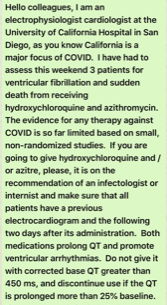
Clinical Presentation
Symptoms and Labs/Imaging
initial analysis from the outbreak in China (n=44,000)
The majority of infections were in 30-70 year olds
Disease Severity – 1.2% asymptomatic, 80% mild 20% severe disease (testing started after outbreak and may underestimate asymptomatic)
Symptoms:
• Fever 43.8%(eventually in 80%)
• Cough 67.8% (Sputum 33.7%)
• Fatigue 38.1%
• Shortness of Breath 18.7%
• Myalgia/Arthralgia 14.9%
• Sore throat 13.9%
• Headache 13.4% v
Lab/imaging:
• Lymphocytopenia (<1500) 83.2%
• CRP > 10 60.7%
• CXR abnormality 59% (most commonly bilateral or local patchy shadowing)
Other reported Symptoms
• Reports of anosmia in as high as 30-50% of patients (anecdotal reports) 3/23/20
In a small study while diarrhea and sinusitis were seen all patients with those symptoms also had cough however one patient had just rhinitis and otitis with no other symptoms
Cough 7/9, Fever 2/9, Diarrhea (2/9 both had cough and fever) , sinusitis 4/9 (all had cough), rhinitis (2/9, 1 also with otitis 1 with cough), Asymptomatic 1/9 (n=9 Germany)
3/15/20 possible signal that diarrhea may be more common than previously thought in presentation
Chloroquine for Treatment of COVID19 from Geoff Modest
A systematic review of the efficacy and safety of chloroquine (see covid Chloroquine reviewjcitcare2020in dropbox, or doi.org/10.1016/j.jcrc.2020.03.005)
Details:
— 6 articles were reviewed (one letter, one in-vitro study, one editorial, one expert consensus paper, and 2 national guideline documents)
— there are 23 ongoing clinical trials in China using chloroquine or hydroxychloroquine in different groups and looking at different outcomes: patients with mild to severe to critically ill Covid-19, with outcomes including conversion to a negative PCR assay, normalizing clinical symptoms, clinical recovery time, length of hospital stay, mortality rate, etc. A few studies are comparing it to lopinavir/ritonavir
Results:
— one Chinese lab study found that of 7 antivirals tested, remdesivir and chloroquine were remarkably effective in suppressing SARS-CoV-2, even at quite low doses. chloroquine, unlike remdesivir, functioned at blocking both SARS-CoV-2 cell entry as well as at the post-entry stages of infection, remdesivir only the latter (see covid Chloroquine reviewjcitcare2020 in dropbox, or Wang M. Cell Research 2020; 30: 269), and chloroquine has good penetration into lung tissue
— another article found that in more than 100 patients chloroquine inhibited the exacerbation of pneumonia, improved lung imaging findings, promoted a virus conversion to negative, and shortened the disease course. I should add that the above systematic review of chloroquine did not find evidence of such data in their trial registries
— a Chinese multi-collaborative expert consensus concluded that chloroquine 500 mg twice a day for 10 days was recommended for people with mild, moderate, and severe cases of SARS-CoV-2 pneumonia. They also suggested blood testing to rule out the development of anemia, thrombocytopenia, or leukopenia as well as electrolyte disturbances or hepatic/renal dysfunction, and an EKG to rule out development of QTc prolongation. Of note, this consensus document was relying on information that has not yet been published
— the Dutch Center of Disease Control suggested administering chloroquine to treat severe infections requiring admission to the hospital and oxygen therapy or admitted to the ICU, though treating with optimal supportive care was also considered a reasonable option
— the Italian Society of Infectious and Tropical Disease recommended the use of chloroquine or hydroxychloroquine for 5 to 20 days according to the clinical disease severity, but including those with mild respiratory symptoms who had comorbidities
Title of articles
Modal Description
Title of articles

Modal Description
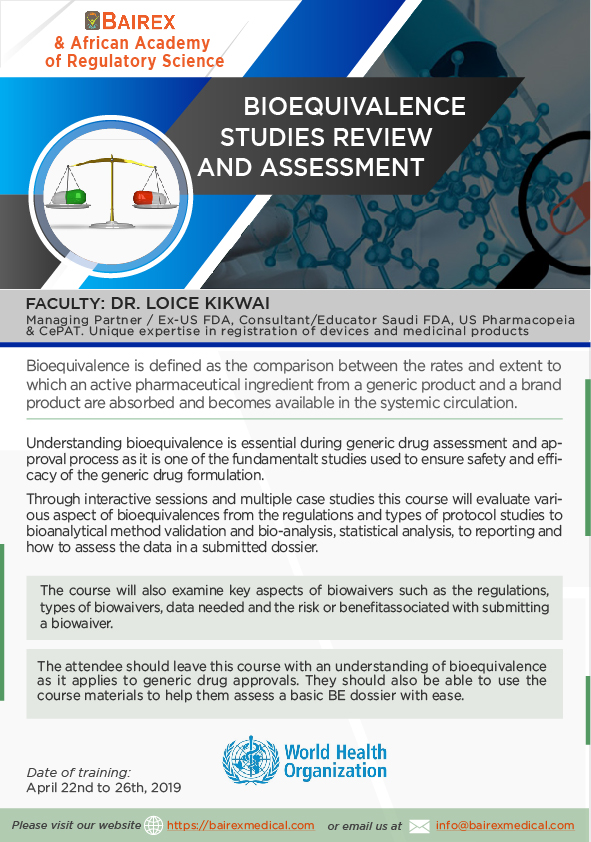
BAIREX INTRODUCES THE BROAD STROKES ™ MEDICAL EDUCATION LECTURE SERIES
Bairex’s medical education lecture series called Broad Strokes ™ incorporates key aspects of both national and international conferences which occur throughout the year.
One of our current main areas of interest in Africa and the Middle East is non-communicable diseases (NCDs). NCDs are emerging as the leading cause of illness and death worldwide, especially in the low and middle income countries. This shift towards NCDs in developing countries has dispelled the popular myth that NCDs primarily afflict affluent (high income) populations. Many LMICs, are currently undergoing epidemiological transitions from predominantly infectious diseases to NCDs. This change can be attributed to changing lifestyles that promote western diet and physical inactivity. Current projections show that the largest increases in NCD deaths by 2025 will be in LMICs.
Therefore, our current emphasis is to educate about NCDs, including:
- Cardiovascular diseases
- Oncology & hematology
- Respiratory diseases
- Metabolic diseases: diabetes
- Neurodegenerative diseases
Our educational objectives are multifold. We aspire that our expert faculty highlight the magnitude of and socio-economic impact of particular NCDs in Africa and the Middle East, identifying the primary risk factors, primary prevention of the NCD and early treatment. The Pan-African and Middle Eastern experience of evolving NCD prevention/control and testing recommendations as well as current management practices should be addressed. Emphasis should be placed on the approaches underway by various nations and communities to strengthen local, country and global initiatives to prevent and control NCDs as part of national health plans and sustainable development frameworks.
Our mission is to share knowledge and create forum for collaboration with fellow medical doctors, nurses, pharmacists and other health care professionals
To Stop the Sale of Falsified Medicines, Africa Must Free Itself from Dependence on Foreign Drugmakers
By Dr. Menghis Bairu
A few years ago I travelled to Ghana to see the state-of-the art pharmaceutical research and manufacturing company a friend had established there. He had long worked as an executive for several of the largest pharmaceutical companies in the United States before launching his company with the goal of bringing to Africa the type of medicines he had spent his career producing.
The company was successful at establishing a high-quality production, but they found themselves competing against imports from countries, such as India and China, that were easy to buy and cheaper. There was little oversight of medicines that came into the African market to assure they were what they claimed to be.
Earlier this month, leaders from seven African nations met in Lomé, Togo to sign a political declaration to crack down on the trafficking of fake medicines in Africa, ratify existing international agreements, and introduce new criminal penalties against traffickers.
The U.K.-based Brazzaville Foundation organized the effort, known as the Lomé Initiative. The Foundation said it will establish an online site for the public to contribute additional ideas and solutions. Proposals that emerge from that process will be discussed at a follow-up forum in Africa before the end of the year.
“Today’s an important day, because it is the first time that us Africans are tackling the trafficking of fake medicines,” said H.E. Faure Gnassingbé, president of Togo during a plenary session of the high-level signing ceremony. “Our continent and our people suffer most from its devastating consequences. Africa must commit to fighting this deadly scourge.”
The problem of falsified medicine is a global problem with deadly consequences. The World Health Organization estimates 128 countries are affected by this problem.
It can be difficult to quantify the extent of the problem because falsified medicines that go undetected may lead a doctor to assume it was the wrong drug for the particular patient rather than the formulation or strength of the drug was different than the packaging claimed.
Each year, an estimated $200 billion of substandard and falsified drugs are sold, which is between 10 to 15 percent of the global pharmaceutical market, according to the World Health Organization. That comes with deadly consequences for the unsuspecting consumers of these falsified or substandard medicines. More than 122,000 children under five die each year due to poor-quality antimalarials in sub-Saharan Africa alone, according to estimates from the American Society of Tropical Medicine and Hygiene.
The problem is particularly acute in Africa, where some 42 percent of all falsified medicines discovered since 2013 have been found, according to the World Health Organization. It estimates that falsified medicines account for anywhere between 30 percent and 60 percent of all medicines sold in certain African countries. In contrast, countries that have established regulations and enforcement, this figure is is just 1 percent.
“These death traffickers do not know any borders,” said Aminata Touré, President of the Economic and Social Council of Senegal, who moderated the summit. “It is crucial that our countries work together, define intergovernmental cooperation mechanisms, share intel, and harmonize legislation to criminalize this activity.”
The Lomé Initiative is a positive step toward protecting and improving the health of Africans, but as my friend recently remarked to me in response to it, “Our leaders always meet but problem persists.”
His remark wasn’t intended to be cynical. It was meant to reflect the reality that Africans will continue to be susceptible to falsified medicines until we address the lack of capacity within the continent to produce the drugs its people need. They will remain vulnerable as long as Africa remains dependent on foreign companies to provide the medicines it requires to assure the health and wellbeing of its people.
To truly combat the problem of falsified medicine, Africa must do far more than criminalize the activity. It must work towards building capacity for its own pharmaceutical industry. To do so will require addressing a range of complex issues from access to capital to building needed infrastructure. It will also require establishing a world-class regulatory capacity operated by competent and empowered regulators to ensure the quality of medicines.
This is not just an urgent issue for the economic future of the continent, but a matter upon which the health and wellbeing of its people will depend.
Dr. Menghis Bairu is a physician, international biopharmaceutical executive, author, and philanthropist. He is founder, chairman, and CEO of Proxenia Venture Partners, which seeks to build companies that address global challenges through innovative approaches.
Dear friends:
I recently returned from Ethiopia and Eritrea where I had the opportunity to work with the Himalayan Cataract Project (HCP), a US based nonprofit that, in partnership with in-country stakeholders, seeks to eradicate preventable and curable blindness in underserved areas of the world. I wanted to share my recent experience with others who may be inspired to support efforts to restore sight and life to the needlessly blind in some of the most difficult to reach locations on the planet.
As a physician and life science executive, I’ve dedicated my professional life working to improve global health through international outreach and philanthropy. Though I live in the San Francisco Bay Area, I feel a deep commitment to giving back to my broader community of origin.
In November, I coordinated and worked with the HCP to conduct a high-volume surgical outreach and training event in Ethiopia and Eritrea. HCP performed 4,300 sight-restoring surgeries and clinical training in less than three week's time. The clinical team was from the United States, Nepal, Ethiopia and Eritrea. It represented a true international effort.
Since 1995, HCP has been providing the highest quality care at the lowest cost in its effort to end preventable blindness. There are 36 million people blind in the world today and nearly half of them—13.4 million people—are blind from cataracts. The organization has an innovative model to address both the huge backlog of people waiting for cataract surgery and the need to train more clinicians to do the work—each sight-restoring surgery performed takes ten minutes and costs $25 in materials.
The HCP has agreed to return to the region in early 2020 to perform 4,000 additional cataract surgeries. To enable this to happen, we need to raise $100,000 to fund the effort.
I've seen first-hand the immeasurable joy radiating from Ethiopians and Eritreans after having their sight restored by HCP, and a world of darkness is washed away with the careful touch of a surgeon. I support the Himalayan Cataract Project because we can solve needless blindness in our lifetime, but only if we work together. Please join in me supporting such a critical cause and donate today!
Sincerely,
Menghis Bairu, MD
About HCP | CureBlindness
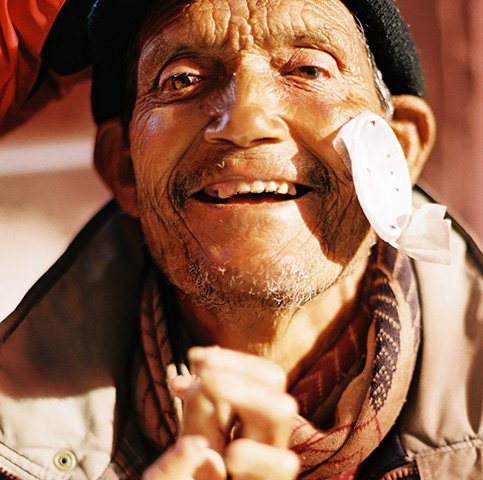
Innovative Eye Care Model - HCP works to overcome barriers impeding delivery of cataract care to underserved, needlessly blind people.
Read more
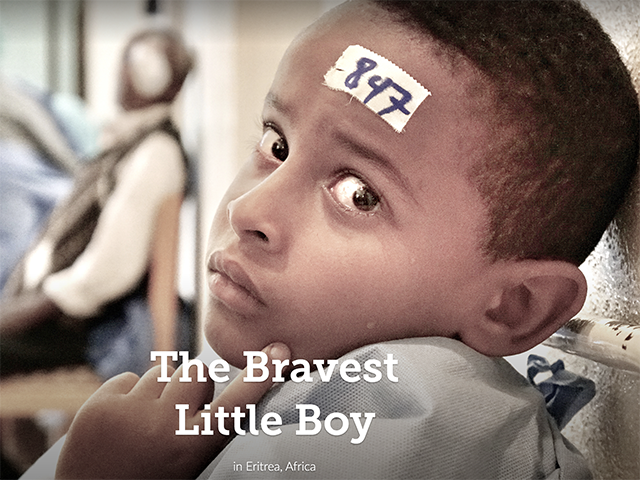
At HCP’s first-ever surgical outreach in Eritrea, Dr. Menghis stood by a young boy's side in a difficult situation.
Read more
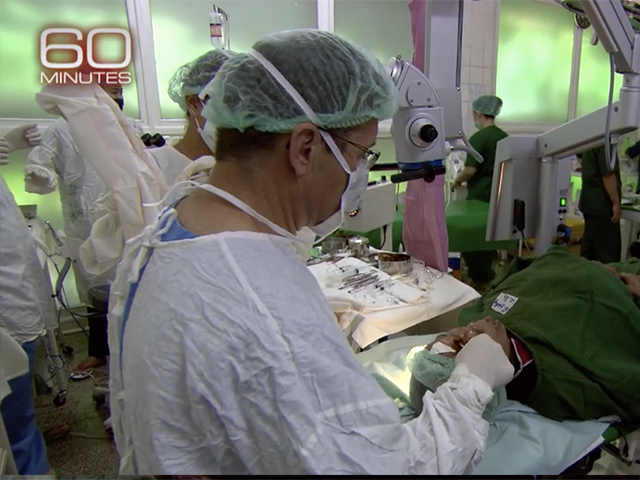
HCP co-founders Drs. Geoff Tabin and Sanduk Ruit, and their revolutionary, low-cost, 10-minute procedure caught the attention of 60 Minutes, ...
Watch the Story

Change lives with the gift of sight: join HCP's efforts to eradicate preventable blindness
https://charity.gofundme.com/o/en/campaign/giving-the-gift-of-sight-in-ethiopia-and-eritrea
The effects of blindness are profound and felt mostly by the poor. Lives are shortened, men and women are torn from the labor force, and kids are robbed of a childhood. In low- and middle-income countries, the effects of blindness have devastating consequences on these individuals and their families.
What makes this situation even more tragic is that 80 percent of blindness is treatable or preventable. In the developing world, 18 million people are unable to perform the tasks of daily living because of cataracts that can be addressed with a 10-minute surgery that requires just $25 in materials.
The Himalayan Cataract Project (HCP) works to cure preventable blindness. Since its establishment in 1995, HCP has been committed to overcoming barriers impeding delivery of cataract care to underserved, needlessly blind people in low- and middle-income countries with a focus on providing high-quality care, training local personnel, and establishing world-class eye care infrastructure where it is needed most. In 2019 alone, Dr Tilahun Kiros and his team conducted six campaigns in Tigray, Ethiopia for over 6,952 sight restoring surgeries.
| 2019 | Cataract Surgeries | TT Surgeries | Other Surgeries | Total Surgeries |
|---|---|---|---|---|
| Quiha | 3997 | 893 | 60 | 4950 |
| Axum | 1338 | 304 | 0 | 1642 |
We are working now to raise $100,000 to restore sight to 4,000 visually impaired patients in Eritrea and Ethiopia by March 31, 2020. You can help. I am asking that you consider making a $25 contribution to help our effort. Thanks to the generous support of people like you, we have raised $57,350 of $100,000 goal in just two weeks.
If you haven’t done so, please give the Gift of Sight now. If you have, thank you and please encourage others to do the same.
